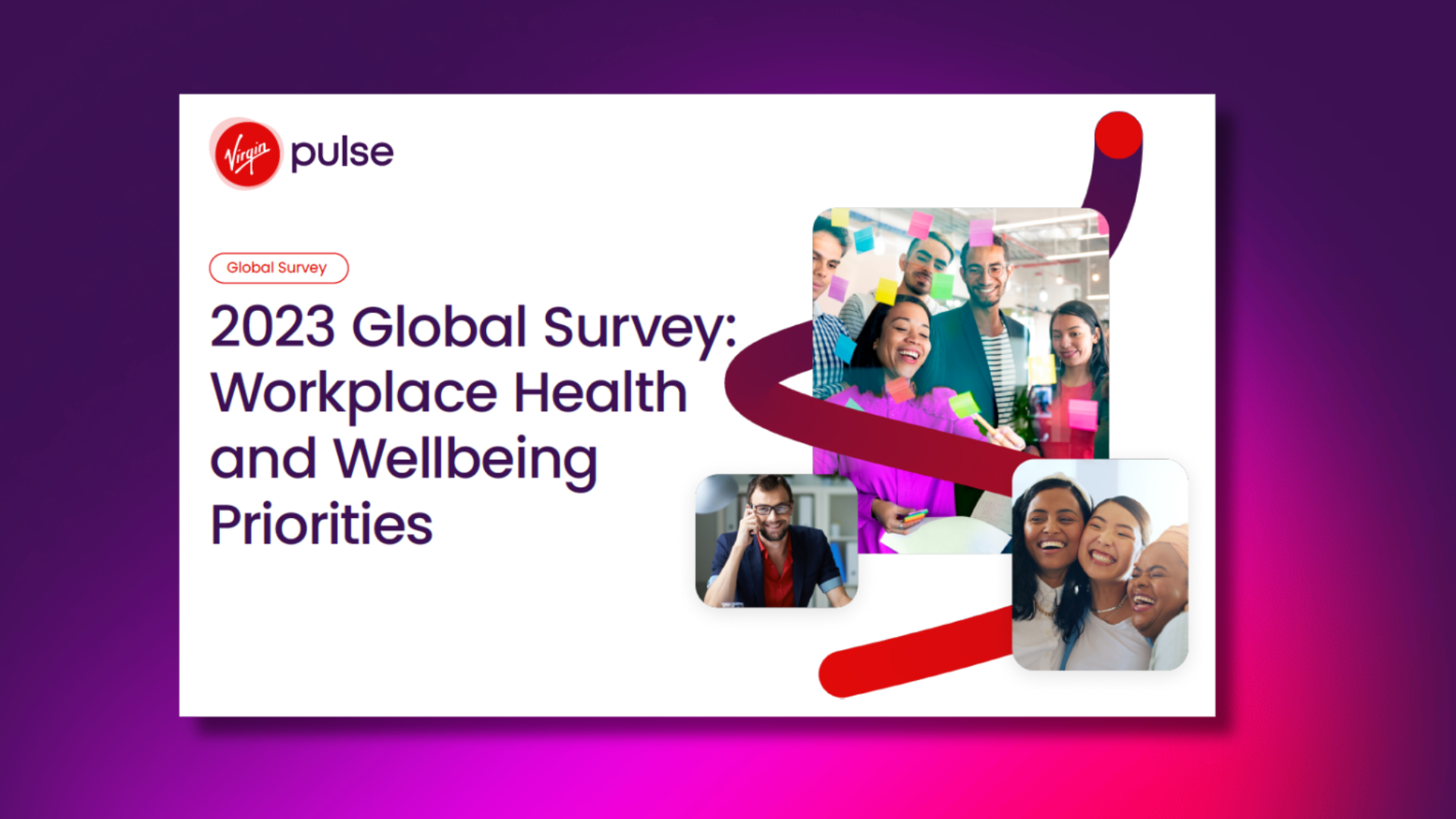2023 Global Survey Report: Workplace Health and Wellbeing Priorities
Global organisations are dealing with several challenges such as financial difficulties, increased costs, and productivity issues.
We surveyed 600 HR and Benefits Leaders about their employee wellbeing experiences and plans for 2024.
The survey results show the undeniable need for workplace wellbeing, how organisations are measuring ROI, and why health & wellbeing programmes are helping to address mental health and work-related stress.
Want to learn more valuable insights about employee wellbeing? Download the report 👉
About this survey
To gather insights for this report, Virgin Pulse partnered with an
independent research firm, YouGov.
The Virgin Pulse global survey was conducted in May 2023 and includes HR business partners/senior managers and higher at organisations with over 1,000 employees. The 600 respondents cover geographies including: U.S., UK, Australia, Belgium, Canada, France, Germany, the Netherlands, and Switzerland.
Bonus Content:
You'll also receive complimentary access to our "Overcoming budget barriers" leadership guide to help make a case for HR initiatives and an on-demand replay, "Navigating for the Future", with Virgin Pulse CEO Chris Michalak

Download your copy!
Download this report if you spend at least a quarter of your time in any of these areas:
Human Resources ⋅ Employee Wellbeing ⋅ Benefits ⋅ HR and Benefits Communications ⋅ Corporate Culture ⋅ Health Outcomes ⋅ Employee Experience and Engagement ⋅ Workplace Wellness ⋅ Mental Health and Stress Reduction ⋅ Reducing Costs ⋅ Wellbeing ROI ⋅ 2024 HR Strategy ⋅ Positive Employee Behaviors
2023 Workplace Health and Wellbeing Results
71%
of survey respondents say they can clearly see an ROI of their health and wellbeing programme
67%
of survey respondents ranked positive employee behaviours as top outcome of their health and wellbeing programmes
63%
use social media to raise awareness of health and wellbeing programmes across their population, second only to email
Additional resources picked for you:

Realize Value from Your Employee Benefit Investments

Top Priorities for HR in 2023
Your employees' expectations have rapidly evolved, and it can be hard to keep up. Ensure your employees have the support they need with this tipsheet to help you narrow your efforts for the greatest impact.

Employee Retention + Engagement Resources
6 out of 10 US employees are considering resigning in 2023... Set your employee retention strategy up for success with this collection of tools and resources.

5 Forces Shaping Health, Wellbeing, and Benefits in 2023
How do you continue to impact employee wellbeing, engagement, and healthcare costs in 2023? Hear firsthand from Virgin Pulse leaders as they share insights and trends you can use to apply to your organisation.

How Inclusive Is Your Health & Wellbeing Programme?

See the Power of Pulse
There's no better way to understand the power of Virgin Pulse's health, wellbeing, and benefits navigation with advocacy solutions than to see it live. See how we solve for personalised health and wellbeing, healthcare access and affordability, culture, and employee engagement.